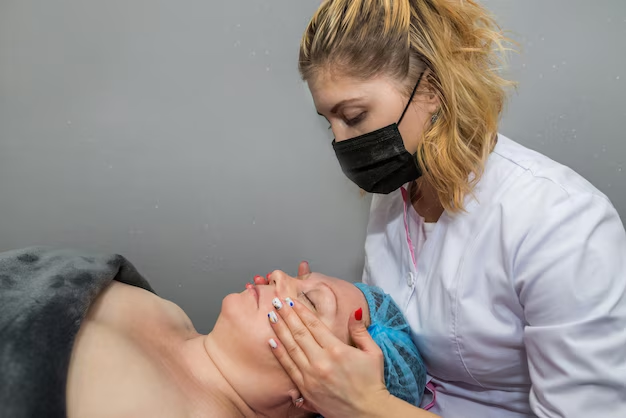Understanding Rosacea: Is It an Autoimmune Condition?
Rosacea is a common skin condition that often causes redness and visible blood vessels on the face. This chronic disorder can be quite distressing due to its noticeable symptoms and the emotional impact it can have on those affected. A question that frequently arises among sufferers and medical professionals alike is whether rosacea is an autoimmune condition. As we delve into this topic, we’ll explore the nature of rosacea, the autoimmune system, and consider the links that might connect the two. Our goal is to provide a comprehensive understanding of rosacea and its potential classification as an autoimmune disease, without delving into medical advice.
The Intricacies of Rosacea: What It Is and Who It Affects
What is Rosacea?
Rosacea is a long-term skin disorder characterized by facial redness, swelling, and sometimes acne-like outbreaks. It mainly affects the central part of the face, and symptoms may wax and wane over time. While the exact cause of rosacea remains unknown, various factors including genetics, environment, and immune system responses are believed to play a role.
Common Symptoms of Rosacea
- Facial Redness: Predominantly across the cheeks, nose, chin, and forehead.
- Swollen Red Bumps: Sometimes confused with acne, these may contain pus.
- Visible Blood Vessels: Known as telangiectasia, these are often seen on the surface of the skin.
- Eye Problems: Dry, irritated, swollen eyes and eyelids are common.
Who is at Risk?
Rosacea most commonly affects fair-skinned individuals, particularly those with a family history of the condition. It usually begins after age 30 and can be more prevalent in women, although men may experience more severe symptoms.
Is Rosacea an Autoimmune Disease? Unpacking the Complexity
Understanding Autoimmune Disorders
To demystify the potential link between rosacea and autoimmune diseases, it’s crucial to understand what constitutes an autoimmune disorder. These conditions occur when the immune system mistakenly attacks the body's own tissues, perceiving them as threats. This can lead to inflammation and damage to various organs.
Evaluating Rosacea’s Status
While rosacea involves immune system activity, it is not officially classified as an autoimmune disease. The inflammation seen in rosacea appears to result from dysregulation rather than an autoimmune attack. However, some scientific circles continue to explore the links between the immune system's role and rosacea, given the overlap in inflammation processes seen in autoimmune disorders.
Common Misconceptions
- Confusion with Autoimmune Symptoms: The immune involvement in rosacea often leads to its confusion with autoimmune disorders. However, distinguishing factors such as the lack of systemic organ involvement set rosacea apart.
- The Role of Demodex Mites: There’s evidence suggesting that certain types of mites and bacteria can trigger rosacea symptoms. This points more towards an immune reaction rather than an autoimmune condition.
Exploring the Causes: What Triggers Rosacea?
Understanding potential triggers can help manage rosacea symptoms more effectively.
Environmental Factors
- Sunlight: Sun exposure is a well-known trigger, making sun protection crucial.
- Weather: Cold wind and hot weather can exacerbate symptoms.
- Diet: Spicy foods, alcohol, and hot beverages can trigger flare-ups.
Biological Influences
- Vascular Abnormalities: Likely involved due to the prominent blood vessel signs.
- Genetic Factors: Those with a family history are at higher risk.
- Microorganisms: The presence of bacteria and mites on the skin is under constant review for its potential influence on rosacea.
Managing Rosacea: Practical Steps for Everyday Life
Although there is no cure for rosacea, there are ways to manage symptoms effectively and improve one’s quality of life.
Daily Skincare Routine
- Gentle Cleanser: Use mild, non-irritating products on sensitive skin.
- Moisturizer: Keep the skin hydrated to combat dryness.
- Sun Protection: Broad-spectrum SPF 30 or higher is essential.
Lifestyle Adjustments
- Dietary Caution: Identify and avoid personal food and drink triggers.
- Stress Management: Techniques like yoga and meditation can lead to fewer flare-ups.
- Temperature Control: Avoid extreme temperatures in baths, saunas, and while outdoors.
Emerging Research: Future Directions
There is ongoing research in understanding rosacea and its potential links to autoimmune disorders. Scientists are exploring:
Immune System Targeting Therapies
There are investigations into therapies that modulate the immune system's response to reduce inflammation without the systemic effects seen in autoimmune diseases.
Genetic Studies
Identification of specific genetic markers may provide insights into susceptibility and the development of targeted treatments.
Final Thoughts and Insights
While rosacea shares some inflammatory characteristics with autoimmune diseases, it remains classified as a distinct condition largely due to its localized skin involvement and current understanding of its triggers. Continued research may unveil further complexities, enhancing our capacity to manage and treat this condition more effectively.
Summary of Key Insights
🔎 Understanding
- Rosacea is a chronic inflammatory skin condition, not currently classified as autoimmune.
- Symptoms include facial redness, swollen bumps, visible blood vessels, and eye issues.
🧩 Connections
- Involves immune system dysregulation, similar to autoimmune processes, but differs in impact scope.
- Environmental, biological, and genetic factors contribute to flare-ups.
✨ Management Tips
- Practice daily sun protection and gentle skincare.
- Identify personal triggers and adjust diet accordingly.
- Employ stress management and maintain stable temperatures.
🏛 Future Directions
- Continued research into genetic markers and immune response therapies may change classifications and treatment options in the future.
This comprehensive understanding empowers individuals with rosacea to better navigate their condition and contributes to informed discussions with healthcare professionals.

